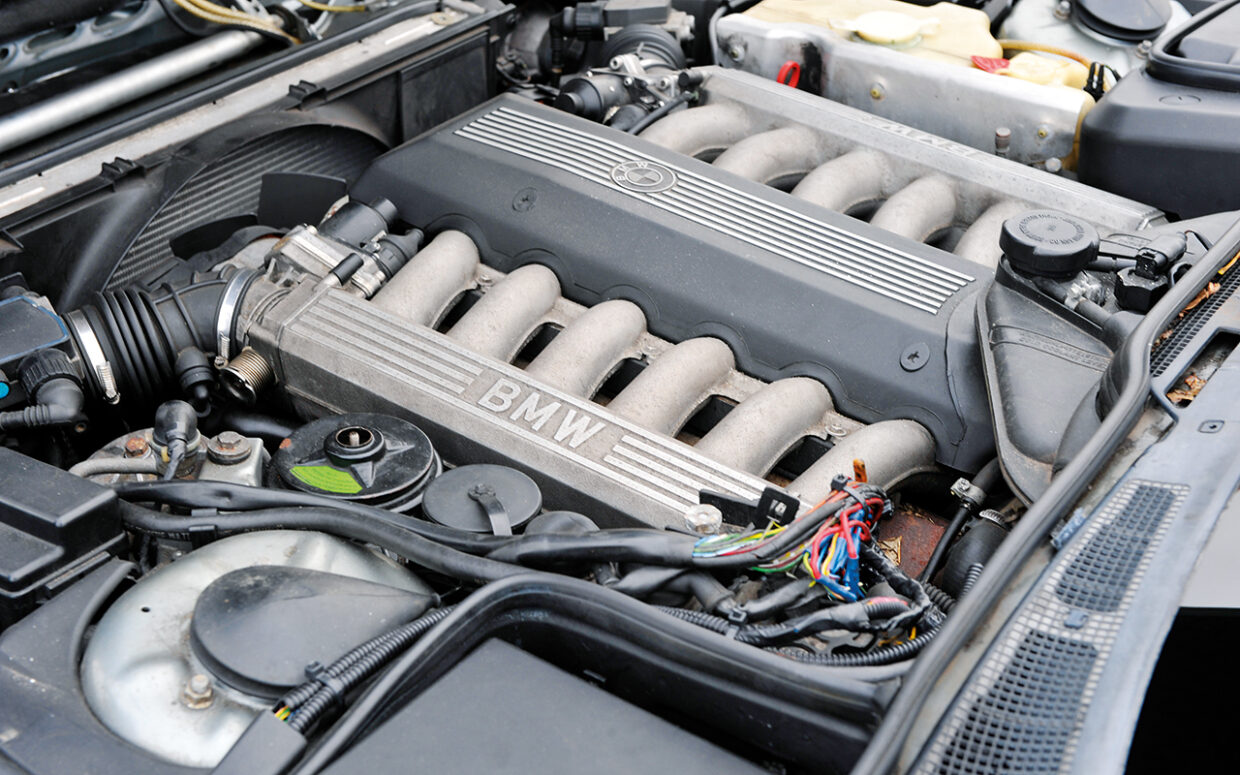The Duty of BMW Engine Design in Achieving Exceptional Fuel Performance
The Duty of BMW Engine Design in Achieving Exceptional Fuel Performance
Blog Article
Revealing the Intricacies of Next-Generation Power Units: a Deep Dive Into Advanced Engine Styles and Innovations
As we stand on the precipice of a brand-new era in transport, the ins and outs of next-generation engine styles bid us to explore the innovative innovations and innovations that promise to redefine the driving experience. Digging much deeper into the realms of discharge control, smart engine management systems, and the perspective of power system development, we discover ourselves on the cusp of a makeover that guarantees to improve the landscape of flexibility as we recognize it.
Advancement of Engine Materials

The shift towards advanced engine products has likewise enabled engineers to design engines with greater power outcomes while keeping gas performance criteria. For instance, using lightweight materials minimizes the total weight of the engine, resulting in enhanced gas economic situation and reduced discharges. Furthermore, advancements in materials innovation have actually enabled much better thermal management within engines, leading to enhanced integrity and durability.
Turbocharging and Supercharging Technologies
How do Turbocharging and Supercharging Technologies change engine performance and effectiveness in modern-day vehicles? Turbocharging and supercharging are innovations that substantially boost engine performance by boosting the quantity of air consumption right into the combustion chamber. Turbocharging achieves this by making use of a turbine driven by exhaust gases to pressurize the consumption air, while turbo charging utilizes a belt- or chain-driven compressor to achieve the same effect.
These technologies allow smaller, a lot more fuel-efficient engines to produce power equivalent to larger ones, referred to as downsizing. Forcibly even more air right into the cyndrical tubes, turbocharging and supercharging enhance burning effectiveness, resulting in raised horsepower and torque result without a substantial increase in engine dimension. This brings about much better velocity, hauling ability, and general driving performance.
Additionally, supercharging and turbocharging add to boosted gas efficiency by allowing the usage of smaller engines that take in less gas under typical driving problems - bmw engine. This combination of improved efficiency and efficiency has made turbocharging and turbo charging essential parts of many modern-day engine styles
Exhaust Control and Environmental Influence
With boosting international worries pertaining to air quality and ecological sustainability, the execution of exhaust control technologies in automobiles plays an important duty in reducing dangerous toxins released right into the environment. Modern vehicles are furnished with innovative discharge control systems that assist lessen the ecological influence of automobile procedures. Catalytic converters, as an example, are created to transform hazardous gases such as carbon monoxide, nitrogen oxides, and hydrocarbons into less dangerous compounds like carbon dioxide and water vapor.
Furthermore, improvements in engine modern technology, such as the combination of exhaust gas recirculation systems and selective catalytic reduction, have significantly added to lowering exhausts. These technologies operate in tandem to optimize combustion performance and minimize the release of damaging pollutants into the air. Additionally, the check my source development of hybrid and electric vehicles represents a critical action in the direction of reducing the overall ecological impact of the transportation market.
Intelligent Engine Monitoring Systems

Moreover, these systems enable automobiles to fulfill stringent exhausts criteria without compromising efficiency, giving a more eco-friendly driving experience. The integration of expert system and artificial intelligence capabilities in engine management systems proceeds to push the borders of what is possible, causing further enhancements in efficiency, dependability, and total car efficiency. bmw engine. As automobile technology breakthroughs, intelligent engine management this website systems will play a vital function fit the future of transport towards an extra reliable and sustainable instructions
Future Trends in Power Device Development
As smart engine monitoring systems pave the method for improved control and optimization in contemporary automobiles, future trends in power system advancement are positioned to redefine the landscape of automobile propulsion innovations. These alternative power sources offer improved efficiency and efficiency while lining up with stringent environmental guidelines.
An additional significant pattern is the integration of innovative materials and manufacturing strategies. Lightweight materials such as carbon fiber and light weight aluminum are being made use of to reduce overall automobile weight, enhancing fuel effectiveness and efficiency. Furthermore, improvements in 3D printing and additive production are allowing the production of complicated engine parts with higher precision and durability.
Additionally, fabricated intelligence and artificial intelligence are playing a crucial duty in maximizing power system efficiency. These modern technologies allow for real-time surveillance and adaptive control, bring about a lot more dependable and effective power shipment. In general, future patterns in power system advancement are tailored towards efficiency, effectiveness, and sustainability, driving the automotive market towards a brand-new era of propulsion modern technologies.

Final Thought
Finally, the innovations in engine materials, turbocharging, discharge control, and intelligent administration systems have actually led the way for next-generation power devices. These innovations have not just enhanced performance and effectiveness yet a fantastic read likewise lowered ecological impact. As technology continues to develop, future trends in power unit advancement are most likely to focus on more improving sustainability and optimizing power result. The complex styles and innovations in contemporary engines showcase the recurring evolution of automobile modern technology.
Exploring the dynamic innovations in engine materials has been essential in improving the performance and effectiveness of modern-day engines. Over the years, the evolution of engine products has actually played a crucial duty in pushing the boundaries of what engines can achieve.The change in the direction of progressed engine materials has actually additionally enabled engineers to make engines with higher power results while preserving fuel efficiency standards.The execution of intelligent engine management systems in modern-day cars has transformed the means engines are managed and optimized for efficiency and efficiency. By gathering information in real-time and assessing it with sophisticated formulas, smart engine administration systems can adjust to driving designs, ecological aspects, and engine wellness to take full advantage of power result while reducing gas usage and emissions.
Report this page